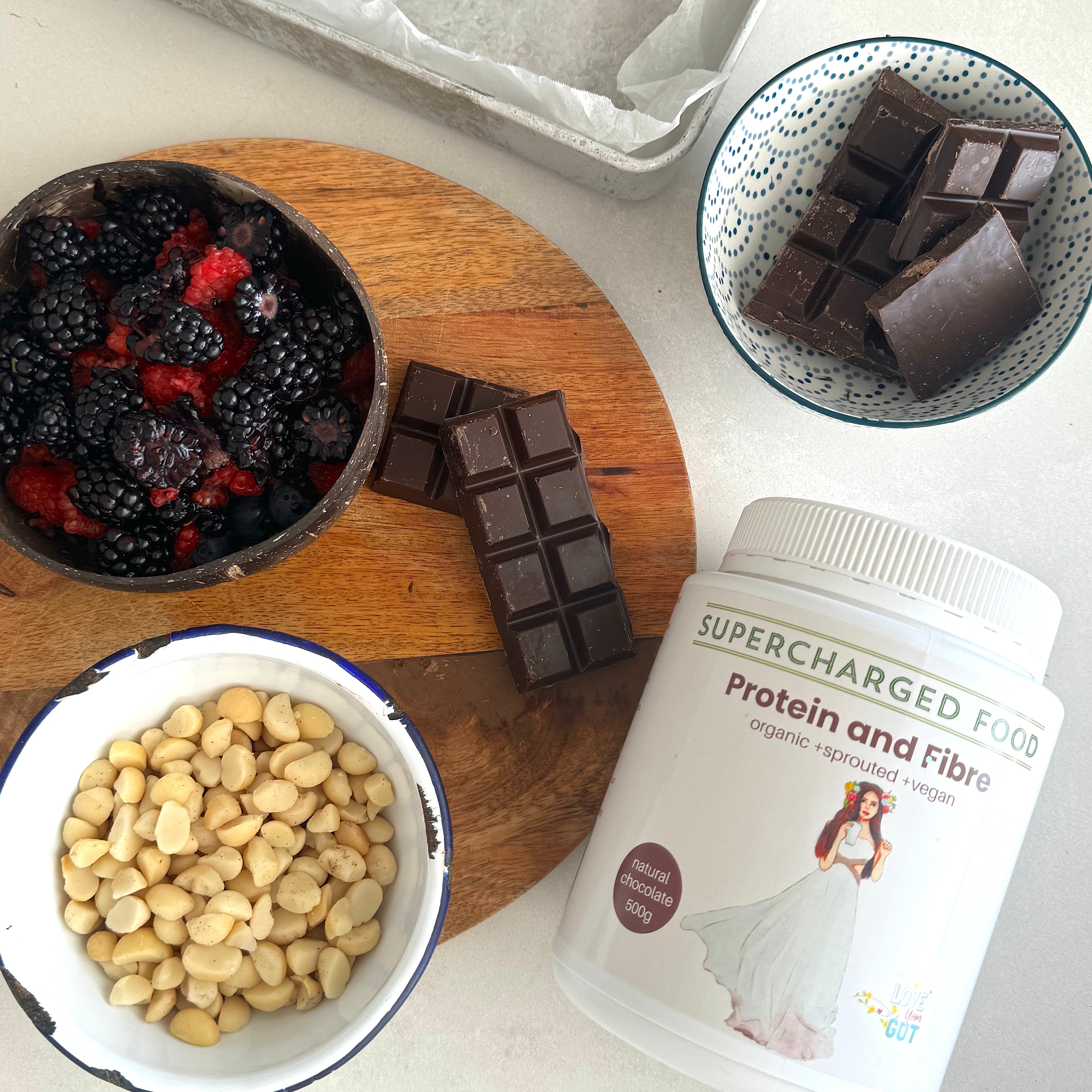Does this sound familiar?
Your third alarm for the morning goes off. You feel groggy and have a dull headache.
Why? Well, you ended up going to bed later than you had anticipated, thanks to that new show you’re hooked on (yes, Netflix, I’m still watching. Don’t judge me!), and now, you’re suffering the consequences. Your brain feels foggy, your body aches all over, and you feel like you’re running on empty. You roll out of bed and head straight to your local to pick up your coffee (extra strong, please!) and something sugary to get you going. And there it is, that sweet, yet momentary, relief.
Then, a couple of hours later, you feel that mental and physical exhaustion start to creep in, so you dive straight into another coffee or espresso and munch on something deliciously sweet.
If this sounds familiar, you’re not alone. Most of us think having low energy levels and feeling tired are standard parts of life. I hate to be the bearer of bad news, but they’re not, and the good news is that they don’t need to be.
Let’s uncover why you may have low energy levels and strategies to help boost your energy levels and up your motivation naturally.
Drivers of Low Energy:
- Poor Sleep

Let’s start with the lowest hanging fruit: poor sleep.
Poor quality sleep, combined with a short amount of time spent asleep, is one of the biggest culprits behind low energy levels. If you’re not sleeping deeply or for a long enough time, your circadian rhythm, or sleep/wake cycle, which regulates feelings of sleepiness and wakefulness, will be disturbed, causing low energy levels.1
- Elevated Stress
Chronic fatigue and decreased energy levels can cause prolonged stress.2 In 2017-2018, an estimated 2.4 million Australians reported high or very high levels of psychological stress, which may explain why everyone at work is complaining about being tired.3
- Imbalanced Gut Bacteria
The gut microbiota regulates several processes in the body, including the absorption and digestion of nutrients; this plays a significant role in sustaining energy levels.4 So, things that impact the balance of the gut microbiota, such as broad-spectrum antibiotics, can dysregulate the gut and disturb normal energy levels.
- An Inflammatory Diet and Caffeine
Excess dietary consumption of foods high in fat and refined carbohydrates may alter sleep quality and quantity, leading to low energy levels.5
Ways to Up Your Energy:
- Enhance Your Sleep
Sure, poor quality sleep is associated with low energy levels, but it’s also linked to weight gain, hormonal dysregulation, cardiovascular disease, anxiety, and reduced overall well-being.6
Here are some of my simple own sleeping tips:
- Set a consistent bedtime and wake time.
- Create a bedtime routine to prime your body to help you fall asleep.
- Sleep in a completely dark, cool and quiet room.
- Expose yourself to bright light, preferably the sun, as soon as you rise.
- Try Exercise Snacking

If you’re tired, the last thing you may feel like doing is an exercise class, but the research shows that low to moderate activity may be just what you need to increase energy and reduce fatigue.7 If you’re low on energy, you may want to skip the HIIT class and choose something like a light jog, brisk walk, Pilates or yoga class.
So, what’s exercise snacking? Exercise snacking is a promising strategy where someone breaks down exercise into short bouts performed a few times a day.8 Doing ten squats while you wait for the kettle to boil or going for a few walks around the block a day are just two simple examples of exercise snacks.
- Manage Your Stress
Unless you’ve been living under a rock (if so, hello! I’m glad you’re here! Fancy a cup of tea?), I’m sure you’ve experienced some level of stress over the last few years. Unfortunately, we know that experiencing high amounts of stress for an extended period can lead to many health consequences.
Some of my favourite ways to reduce stress are:
- Taking a few deep breaths.
- Moving your body
- Eating nourishing foods.
For more tips on ways to instantly destress, click here.
- Fulvic Humic Acid

In Ayurveda, the Indian traditional medicine system, they use fulvic acid as a health rejuvenator. It holds adaptogen qualities, which means it helps the body adapt to stress. I drop Fulvic Humic Concentrate (or, as the cool kids call it, FHC) into my water daily; it promotes mental health, enhances gut healing, and supports the integrity of the gut lining.9
- Eliminate Energy Robbers
Be warned: this is the point no one wants to hear, but it’s one of the most important.
I know when you’re tired, you’re likely to grab that cup of coffee and a sugary snack for some energy, and sure, that will give you a quick energy boost; however, the research shows that a few hours later, you’ll have less energy than before your treat!10
I feel more vibrant since cutting out coffee several years ago, but I know that cutting out coffee altogether isn’t for everyone.
So, if you do want to continue your sugar or caffeine hit, and you don’t experience too many adverse reactions, I recommend the following:
- Keep to one coffee a day before midday.
- If you’re consuming a higher in sugar food, add a quality source of protein to slow down a possible blood sugar spike.
- Foods to Eat
So, if high-sugar and caffeine food and beverages are a no-go, what can you eat? Well, unless you’re intermittent fasting, which you can find out more about here, I recommend consuming three regular meals a day with plenty of healthy protein, fats and lots of salad. This will help keep you satiated and keep your energy stable. Plus, vegetables deliver vital nutrients that support balanced blood sugar for regulated energy levels.
- Regular Hydration

Here’s a simple thought: are you drinking enough water? Water is essential for maintaining blood volume and transporting nutrients throughout the body. Aim to consume around 2L of water a day, and add one glass of water for every cup of coffee, caffeinated tea or alcohol you drink.
- Watch Out for Nutrient Deficiencies
If you’ve been struggling with low energy, it may be a good idea to get some basic blood testing done to see if a nutrient deficiency is the underlying cause of your fatigue.
Some important markers to ask your healthcare practitioner to check include:
- Iron
- Complete blood count
- Vitamin B12
- Vitamin D
- Thyroid panel
One of my favourite nourishing meals that will elevate your energy is this one-pan salmon with greens. It’s so clean and pure in flavour, and one of my ideal energy giving protein sources, both for its health benefits and its luxuriousness when presented simply. Get the recipe, here.
No matter the cause of your low energy levels, enhancing your diet, adding in more movement, and reducing stress will always benefit your life.








1 comment
Fabulous strategies for something I regularly suffer from.
I am working on my gut health as the root of my lack of energy; cravings, chronic constipation; thirst; lack of brain-gut coherence. Sleep and mood issues; anxiety and bouts of depression.
Leave a comment